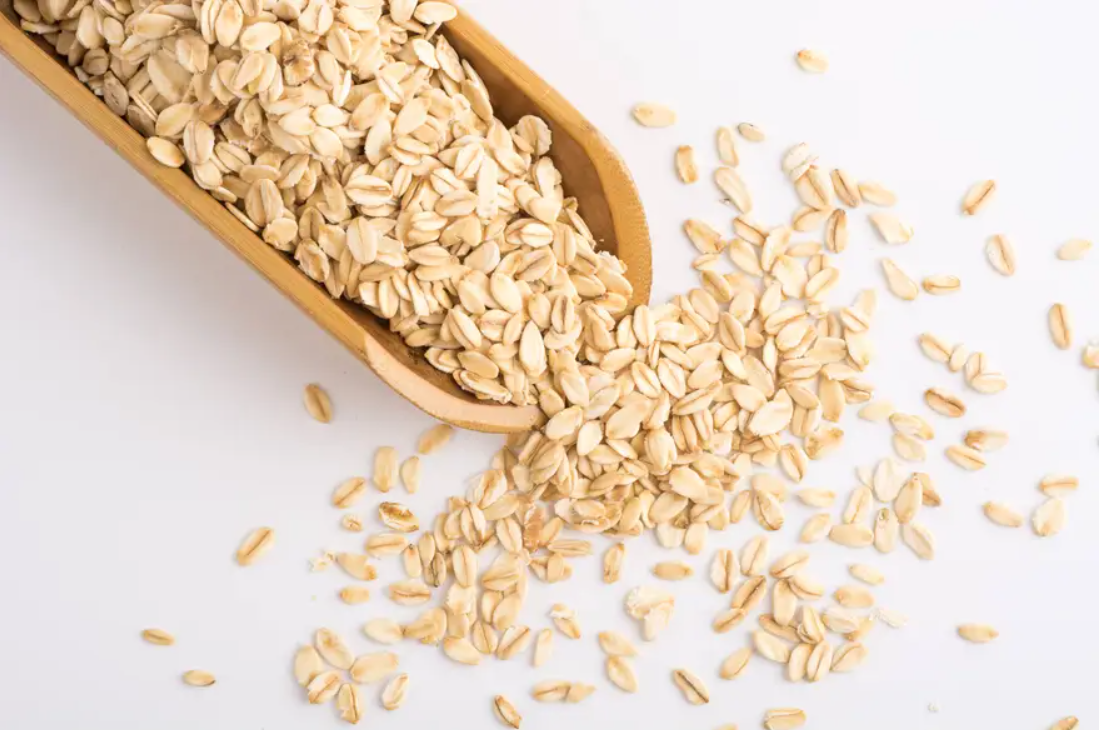More Than Just Fiber: The Surprising Health Benefits Of Oats

For many, a bowl of oatmeal is synonymous with breakfast—a warm, comforting, and fibrous start to the day. While its reputation as a stellar source of dietary fiber is well-deserved, to label oats as merely a "fiber food" is to overlook a complex and powerful nutritional profile. Beyond the roughage lies a whole grain powerhouse packed with unique compounds that offer a surprising array of benefits for everything from heart health to skin vitality. Let's delve deeper into the science-backed advantages that make oats a true superfood.
The Cornerstone: Beta-Glucan and Heart Health
It’s impossible to discuss oats without highlighting beta-glucan, a specific type of soluble fiber that is the cornerstone of its heart-healthy properties. However, its mechanism is more sophisticated than often credited.
When consumed, beta-glucan forms a viscous gel in the digestive tract. This gel acts like a sponge, binding to cholesterol-rich bile acids and escorting them out of the body. This process forces the liver to pull more cholesterol from the bloodstream to create new bile, thereby effectively lowering total and, more importantly, LDL ("bad") cholesterol levels. This isn't just a minor effect; numerous studies, including those reviewed by regulatory bodies like the FDA, have confirmed that consuming just 3 grams of oat beta-glucan daily can significantly reduce cardiovascular risk. This positions oats not just as a food for those with existing concerns, but as a powerful preventative dietary tool for everyone.
A Prebiotic Powerhouse for Gut Microbiome Health
The health of our gut microbiome is now understood to be critically linked to our overall well-being, influencing everything from immunity to mental health. Here, oats play a dual role. The insoluble fiber adds bulk to stool and promotes regularity, but it's the soluble beta-glucan that acts as a potent prebiotic.
Prebiotics are non-digestible food ingredients that stimulate the growth and activity of beneficial bacteria in the colon. As our gut bacteria ferment beta-glucan, they produce short-chain fatty acids (SCFAs), like butyrate. Butyrate serves as the primary fuel for our colon cells, helping to maintain a strong gut lining, reduce inflammation, and may even protect against colorectal cancer. By feeding your good gut bacteria, you're investing in a robust digestive and immune system.
Metabolic Mastery: Blood Sugar and Satiety
The gel-forming property of beta-glucan has another critical beneficiary: your blood sugar levels. By slowing down the digestion and absorption of carbohydrates, oats prevent the sharp spikes and subsequent crashes in blood glucose that follow a high-glycemic meal. This leads to a more sustained release of energy, which is particularly beneficial for individuals with insulin resistance or type 2 diabetes.
This same mechanism is also why a bowl of oatmeal is remarkably satiating. The slow digestion keeps you feeling full and satisfied for longer, which can naturally reduce overall calorie intake and support weight management efforts. It’s a far cry from the fleeting satisfaction of a sugary cereal or a refined carbohydrate breakfast.
The Unsung Heroes: Unique Antioxidants and Anti-Inflammatories
This is where we move into truly "surprising" territory. Oats contain a unique group of antioxidant compounds called avenanthramides, found almost exclusively in this grain. Unlike the antioxidants in many fruits and vegetables, avenanthramides have been studied for their potent anti-inflammatory and anti-itching properties.
Research suggests that these compounds can inhibit inflammatory cytokines and may help protect blood vessels from the damaging process of atherosclerosis. Furthermore, this anti-inflammatory effect is why colloidal oatmeal (oats ground into a fine powder) has been used for centuries to soothe itchy and irritated skin conditions like eczema. The benefits of oats, therefore, can be harnessed both internally and externally.
A Treasure Trove of Essential Nutrients
While we focus on its star components, we must not overlook the foundational nutritional density of oats. They are a respectable source of plant-based protein, essential for muscle repair and satiety. They are also packed with vital vitamins and minerals, including:
-
Manganese: Crucial for bone health, brain function, and antioxidant defense.
-
Phosphorus & Magnesium: Key for bone structure and hundreds of enzymatic reactions in the body.
-
Iron: Essential for oxygen transport in the blood.
-
B Vitamins (especially B1): Vital for converting food into energy.
Incorporating Oats into Your Diet
To reap the full benefits, opt for less processed forms like steel-cut or old-fashioned rolled oats. While instant oats are convenient, they have a higher glycemic index due to their pre-cooking process. Oats are incredibly versatile—use them in classic porridge, blend them into smoothies for thickness, use them as a topping for yogurt, or bake them into healthy granola and snacks.
Conclusion
Oats have comfortably worn the "good for fiber" badge for decades, but it's time we recognized them for the multifaceted nutritional champions they are. From orchestrating cholesterol management and stabilizing blood sugar to nurturing our gut microbiome and fighting inflammation with unique antioxidants, the humble oat grain offers a profound return on a simple dietary investment. It is, without a doubt, a small change with whole-body benefits.







